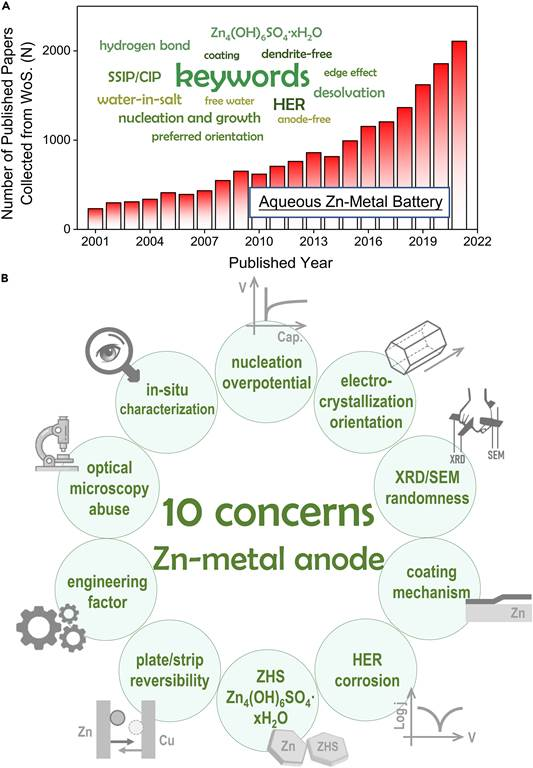Title: Ten concerns of Zn metal anode for rechargeable aqueous zinc batteries
Authors: Xiaoyu Yu, Zhengang Li, Xiaohong Wu, Haitang Zhang, Qingao Zhao, Hanfeng Liang, Huan Wang, Dongliang Chao, Fei Wang, Yu Qiao*, Haoshen Zhou, Shi-Gang Sun
Abstract: Aqueous Zn-ion batteries are attractive for stationary electrochemical energy storage. However, the poor stability/reversibility of the Zn-metal anode (ZMA), owing to dendrite growth and free-water-induced side reactions, and some ambiguous and even misunderstood issues related to the electro-deposition/dissolution process of Zn2+, limit its practical application. In this perspective, we not only propose and clarify existing concerns/issues—including scientific concepts (nucleation overpotential [ηn] and growth overpotential [ηg], exposed crystal face [ECF] and electro-crystallization orientation [ECO], and corrosion current density or exchange current density), non-scientific engineering factors (cell assessment modes and assembly parameters), reaction mechanisms of modification strategies, and limitations of typically used XRD/SEM characterizations—but also appeal to establish accurate and targeted modification strategy/in situ characterization techniques (in situ FTIR/XRD/DEMS) to guide the subsequent optimization. We hope for this perspective to awaken research status of blind advance on Zn-metal batteries and to provide constructive guidance for building theory models and designing modification strategies for narrowing the gap between laboratory research and commercial application of Zn-metal batteries.

Full-Link: https://www.sciencedirect.com/science/article/pii/S2542435123001940